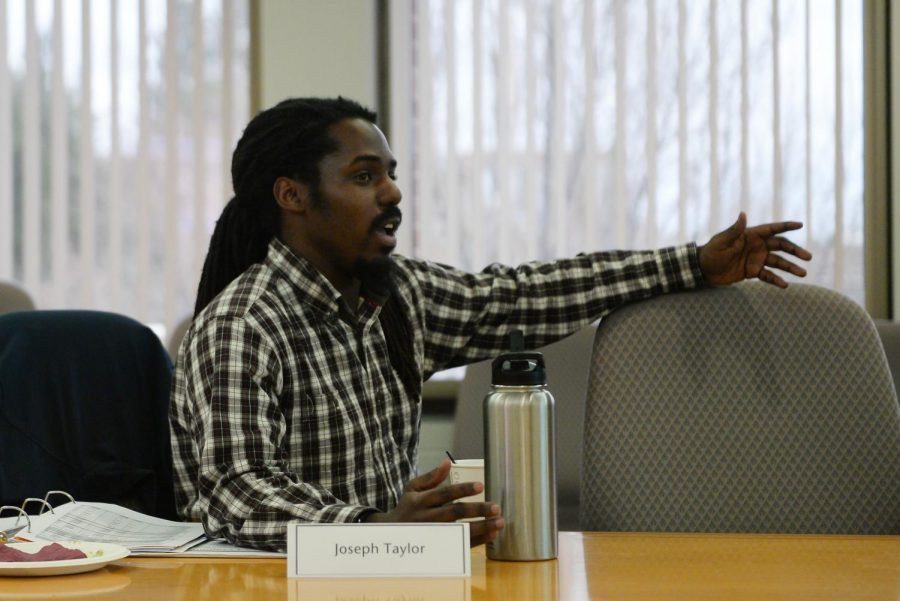Services and Activities Fee Committee approve 4 percent increase
Students could pay up to $558 for S&A Fees next year, just $2 less than record
BENJAMIN MICHAELIS | THE DAILY EVERGREEN
“[The allocated budget] is kind of a statement of what we value as a committee,” Committee member Joseph Taylor said as the group discusses Services and Activities Fee allocations Thursday at Lighty Student Services building.
April 6, 2019
The Services and Activities (S&A) Fee Committee approved a maximum 4 percent increase to the rate of S&A fees that students will pay next academic year. Students will be asked to pay $558, only two dollars less than the highest the fees have ever been.
The committee felt pressure to increase S&A Fee revenue because the reserved S&A revenue decreased substantially in the last few years. In the 2017-2018 academic year, the S&A reserved balance was $1,588,511 after fees were collected and allocated. Next year, after allocations are made, the reserved balance is projected to be near $456,983.
Mary Jo Gonzales, vice president of student affairs, was adamant that the levels of S&A reserves are unsustainable following the recent deficit trends.
“If we don’t build up a set of reserves, [next year’s] committee will be in the same place it is now,” S&A Committee chair Rick Flores said.
Committee member Savannah Rogers was concerned about raising the fee for students. She said WSU’s student fees are already high compared to other universities.
During the committee’s nearly seven hours of deliberations, its members also decided on specific amounts to be allocated to student services and groups.
With the fiscal situation the committee was placed in by previous committees, its members had to make decisions on how to cut funding from groups in a way that would least impact students.
“We trimmed all the fat last year [and] people were at their breaking point,” Committee member Joseph Taylor said. “Services will have to be reduced.”
Taylor was a proponent of the 4 percent S&A fee increase early in the deliberations, and he was also wary of making drastic cuts to organizations. He said he felt the fee increase was necessary as wages and cost of living continues to increase and budget cuts to groups would just lead to fewer student jobs and services down the road.
“[The allocated budget] is kind of a statement of what we value as a committee,” Taylor said.
The committee gave the athletics department $600,000, which is $60,000 less than their original request.
The committee has been working to gradually wean Athletics away from using S&A fees as they have received smaller and smaller allotments from S&A over recent years.
Committee member Rhea Gonzaga said she would have a hard time voting to give a large allotment to athletics when that money could do so much for other groups, services and organizations on campus.
“[The funding] is make or break for everyone but Athletics,” Gonzaga said.
The committee also requested Athletics to develop a plan and timeline of how they will get off of S&A dependence.
WSU Transportation Services was allotted $522,922, which is less than their request of $538,302.
Committee member Amir Gilmore said he felt transportation services should have a healthy reserve to prevent accessibility and transportation issues for students in the time of a funding crisis.
Taylor agreed that the organization needed larger reserves. He said the increased costs from maintenance and gas prices are inevitable, and the service they provide is valuable and used by a large majority of students.
Rogers said transportation was one of the organizations that “double-dip,” in student fees because each student also pays an individual transit fee in addition to S&A.
The committee had to elect not to fund projects like a $75,000 bathroom renovation in the CUB, a $27,000 car replacement for the Center for Civic Engagement and an $18,000 request by UREC to support wheelchair sports.
“We are not fiscally sound enough to be expanding,” Rogers said.





















